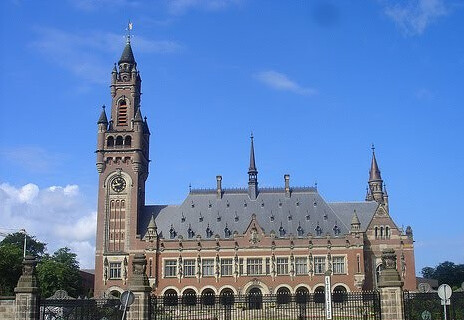


Canada: The Superior Court of Quebec invalidates portions of MAiD laws
Sept. 11, 2019 - The end-of-life and reasonably foreseeable natural death criteria are too restrictive, concludes Justice Christine Beaudoin. According to many groups dedicated to the defense of vulnerable people, governments should appeal the decision.

Netherlands: Doctor acquitted of murder in landmark euthanasia case
Sept. 11, 2019 - A nursing home doctor has been acquitted of the murder of an elderly woman with severe dementia following a closely watched euthanasia trial in the Netherlands.

Quebec: Better palliative care services in Outaouais
Sept. 16, 2019 - The palliative care home Maison Mathieu Froment-Savoie launched a major fundraising campaign, planning to build 5 additional rooms, among other projects.

Italy: The Constitutional Court rules in favor of assisted suicide
Sept. 25, 2019 - Italy’s constitutional court has ruled it was not always a crime to help someone in “intolerable suffering” kill themselves, opening the way for a change of law.

Analysis: Defending conscientious objection
Sept. 29, 2019 - Why conscientious objection is necessary in health care? A short analysis from BioEdge.

New book of testimonies on palliative care
Our president, Dr. Patrick Vinay, along with Gérard St-Onge, traveled across the province to gather luminous testimonies from palliative care homes.

THE PALLIATIVE SPACE
By Patrick Vinay, M.D., Ph.D, president of Living with Dignity
The often brutal arrival of illness violently shakes the former healthy person whose familiar landscape then inescapably changes. The shock is sometimes brutal: “I’m not immortal! I did not have enough time! I wasted precious moments of my life, I will not have time to say this, to do that…” With the physical transformations, the low endorphins, the pain, depression, addiction, she lives with a devaluing self-image. She pulls the sheet over her head. She seeks meaning for a present that does not guaranty a future. The neglected priorities of her life become urgent.
This is where palliative care is involved, to restore the physical comfort first and thus allow meetings with family and friends, a restoration of identity and the putting together of a significant legacy. The practice of narrativity in a significant context allows a desired reinterpretation of past life and interactions with others. It opens a space of identity confirmation full of encounters, discoveries and significant new relationships with caregivers and volunteers, who may become part of an extended family. Identity is rebuilt, richer, more authentic.
This palliative space, which lasts from a few months to a few days, also opens a space of adaptation for family and friends before the departure of the loved one. It is a precious period, a melting pot of humanity where each and everyone discovers the weight of gestures and words in a different light, the strength of fraternity and the true notion of love that extends from age to age. It is this space that should be protected by offering quality palliative care to all who need it and want it. It is also the space that is sacrificed when one chooses a premature death. We must therefore collectively provide the conditions required for a palliative space to be offered to all those who make this choice.
Translated by Maxime Huot Couture


Superior Court ruling on access to MAiD: interview with Michel Racicot
Mr. Michel Racicot, lawyer for LWD and the Physicians’ Alliance against Euthanasia in the Truchon c. Canada court case, reviews the judgment of the Superior Court and explains why the expansion of "medical assistance in dying" is not desirable. (FRENCH)

Why having an end-of-life criterion?
Our analysis in response to the Superior Court of Quebec's ruling. (FRENCH)
SEP
2019
